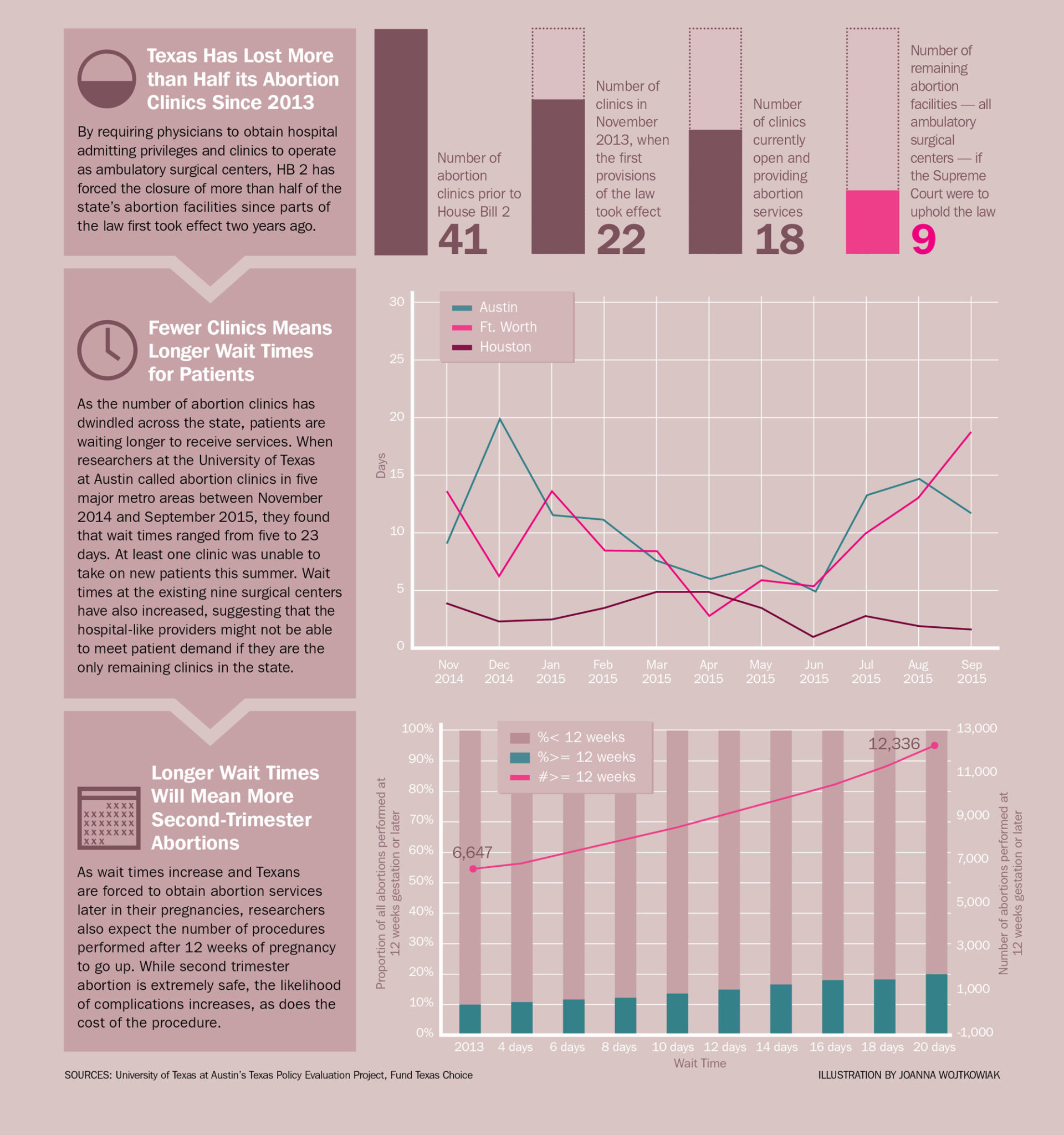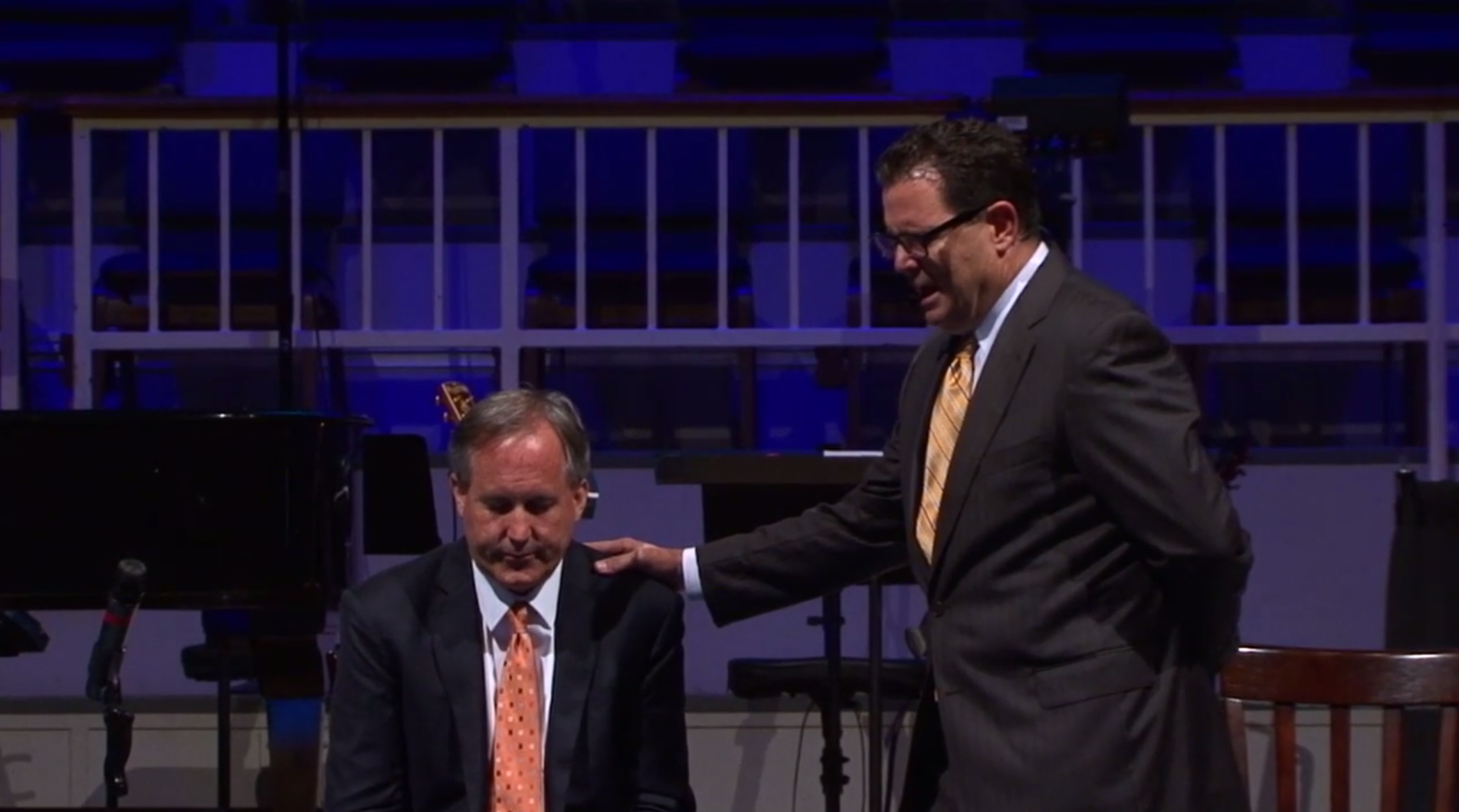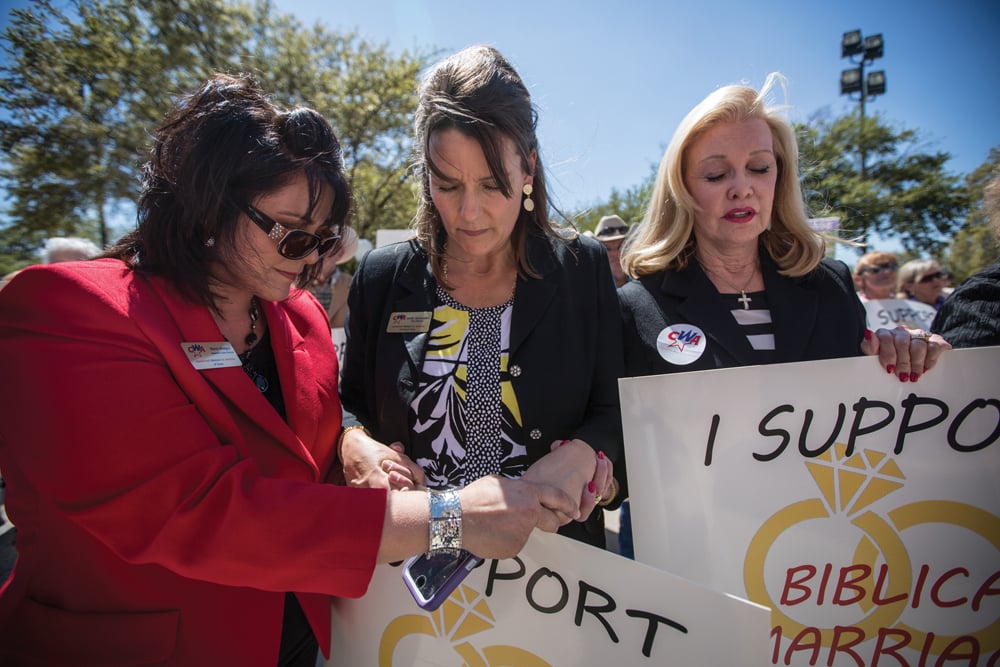
Legislation Would Curtail Citizens’ Ability to Challenge Pollution Permits

Above: State Rep. Geanie Morrison (R-Victoria)
Terrell Graham, a mechanical engineer who lives near Goliad, says now that he was naive. Naive to ever think that he and his wife, Patricia, had a slam-dunk case against a developer that wanted to discharge 350,000 gallons of wastewater into a dry creek on their 112-year-old ranch in Bulverde. The drainage—the Grahams dispute the term “creek”—rarely holds any water, and calling it a public watercourse that the developer could use to convey the effluent seemed like a wild stretch.
“We thought this was a mistake, and if we simply explained the situation it to the Texas Commission on Environmental Quality [the developer] would simply go away,” Terrell told a legislative committee this morning.
Instead, TCEQ tentatively approved the wastewater permit.
Graham and family members who own adjacent parcels of the ranch looked into their options. To challenge the wastewater permit, the family would need to go through what’s called a contested case hearing, a sort of mini-trial overseen by an administrative law judge. The Grahams were willing to spend the money to hire attorneys and experts and take on the developer. But they didn’t expect to find that the government would be a bigger adversary than the developer, DHJB Development LLC.
“Throughout this entire case they went overboard in protecting the developer,” Graham said. “Had we just been fighting with the developer, this would have ended by now.”
Graham said DHJB had indicated on its application to TCEQ that the drainage lacked “perennial pools”—a key factor in determining whether a watercourse is public for the purposes of wastewater discharge. But TCEQ insisted to the judge that the unnamed tributary did have perennial pools. “They were fitting the circumstances to the case law.”
During discovery, Graham says, he discovered that DHJB’s attorneys had extensive contact with TCEQ throughout the permitting process, though he’d never been able to get anyone at the agency on the phone. “The developer is wishing the staff attorney a Merry Christmas,” he said.
Nonetheless, Graham convinced the administrative judge on almost every issue. In early March the judge recommended that the permit be rejected, writing that the wastewater “would adversely impact protestants’ use and enjoyment of their property and might adversely affect the cattle that graze there.”
Now, it’s up the three TCEQ commissioners, who’ve been extraordinarily favorable to business interests on issues small and large, to decide whether to follow the judge’s recommendation.
Graham said he feels vindicated that the judge affirmed his issues but described the contested case process as a “fire drill” that few citizens have the patience or resources to deal with.
Even so, several lawmakers, including the chairwoman of the House Committee on Environmental Regulation, are proposing changes that would make it even more difficult for people like the Grahams to prevail.
The lawmakers are reviving efforts to expedite the contested case process, arguing that it’s too burdensome on businesses. While the House geared up today to for a marathon debate on the budget, the House Environmental Regulation Committee heard hours of testimony on House Bill 1865, introduced by Rep. Geanie Morrison (R-Victoria), that would overhaul the way citizens can challenge permits. Supported by heavy hitters like the Texas Chemical Council, the legislation would require judges to issue a decision within six months; subtly shift the burden of proof to the protestant; and presume that the issuance of a draft permit by TCEQ, a routine matter, is “prima facie demonstration” that the permit meets all state and federal law.
“We are at a serious disadvantage because of the length of time it takes” to get permitted, Morrison said today, comparing Texas to other states competing for major industries.
Citizens and environmental groups today described the legislation as a gift to polluters.
The “proposed legislation will limit rights of citizens to participate,” said Carol Birch, a former administrative law judge. It “fundamentally alters the nature of the process and greatly increases the burden on protestants.”
Environmentalists have used the contested case process to slow, kill or improve permits for cement kilns, coal-fired power plants, landfills, refineries, quarries and other industrial facilities.
Out of some 1,900 environmental permit applications last year, only 10 were contested, according to Alliance for a Clean Texas.
Tom “Smitty” Smith of Public Citizen of Texas said similar legislation has been proposed half a dozen times in the last 20 years, but usually has been blocked in the Senate. This time, without the two-thirds rule, he expects it to pass both the House and Senate.
Graham said he and his family are “blessed” to have the resources to fight to the end. (He plans to appeal to district court if the TCEQ commissioners ignore the administrative judge’s findings.)
“But what about the average family that’s living paycheck to paycheck? What chance do they have?”
Morrison said the committee could return today to hear two more bills related to contested case hearings, HB 1113 by Rep. Travis Clardy (R-Nacogdoches) and HB 1247 by Rep. Wayne Smith (R-Baytown), depending on the course of the budget debate.


